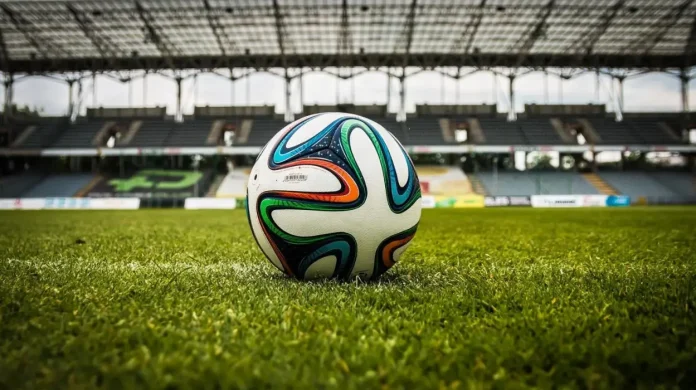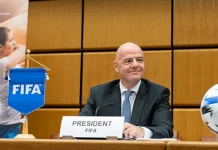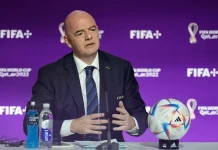FIFA has long promoted itself as a politics-free organization, and football is a uniting power that cuts across state borders. Its legislations and Human Rights Policy directly mention the United Nations Guiding Principles on Business and Human Rights and human rights are respected within its institutional context.
However, the idea of being neutral in practice seems to be discriminatory. The 2022 World Cup was awarded to Qatar and the 2034 tournament to Saudi Arabia despite overwhelming evidence of systematic labor abuses, gross suppression of civil freedoms, and an extensive human rights abuse. Inquiries into the World Cup preparations in Qatar reported thousands of worker deaths, and demanded restitution remedies that were only partially resolved through FIFA compensation fund programs.
Contradictions In Enforcement And Hosting Decisions
Commercial and geopolitical priorities and human rights issues are usually in tension with the process of granting World Cups. Qatar and Saudi Arabia have significant financial resources to influence FIFA as well as a tactical value, which, to some degree, contributed to FIFA not being keen to punish them in spite of the international reproach.
Institutional Ineffectiveness Within FIFA
The Ethics Committee and other Human rights Advisory mechanisms at FIFA have been accused of slow response and lack of transparency. Host country abuses have been minimally investigated and have mostly been done in response to outside pressure, not out of its own initiative, creating a disconnect between what FIFA says and what it does.
Moral Authority Undermined by Financial Realpolitik
The selection of host countries where repression is still in force sends different messages. The sense that money and political favors take precedence over human rights appeal discredits FIFA and makes it questionable whether the organization is capable of supporting itself.
Impact On Players, Fans, And Global Participation
FIFA neutrality rhetoric collides with reality whereby players and fans are marginalised and exposed. The recent 2026 world cup that will feature both the United States, Canada and Mexico as co-hosts highlights the strains that are about to erupt when the visa restrictions and immigration laws might not permit fans and even players to attend in full numbers, especially the poor.
Non-discrimination rules in football FIFA are empty because there is no check on practical barriers. Decades of rhetoric without any real protection or redress have caused disappointment in social justice groups and unions of football players that the high-level values do not trickle down to the lived experience of football.
Civil Society Pressure And Legal Challenges
The dark undertones of FIFA bidding processes that require binding human rights safeguards and comprehensive consultation with communities have been raised by international human rights organizations such as Amnesty International. They highlight that enforceable agreements must direct how workers and host communities are treated, and how so-called post-event stewardship should be carried out.
At the same time, FIFA has been sued in international tribunals regarding its sanctions of the Saudi 2034 bid on the grounds of negligence in not applying FIFA’s own policies regarding human rights issues. These legal issues highlight reputational and legal interests related to the act of turning a blind eye to systematic abuse.
The Interplay Of Global Football And Geopolitics
The neutrality of FIFA usually hides the geopolitical interests behind the decision-making process. As authoritarian regimes invest in major events, football is no longer a pure sport and a projection of soft power. Complicity in governance, which runs against so-called values is contributed by financial reliance on hosting royalties and broadcast rights.
Such realpolitik weakens unity among the member associations and destroys confidence in the people. The view that football is controlled by strong states undermines its credibility as a force that brings people together on a global scale, and stakeholders must deal with political relations through the prism of neutrality.
Toward Genuine Accountability And Reform
President Gianni Infantino of FIFA has admitted that football sanctions have boundaries and he has urged collaboration with the judicial system to supplement sporting sanctions with legal responsibility. However, sustainable improvements require good governance reforms, binding human rights agreements with host nations and involvement of various stakeholders in the decision-making process.
Elevating Human Rights Governance
Instituting human rights impact assessments, audit mechanisms, and whistleblower protections would help embed rights-respecting processes into hosting and operations. These steps could help prevent events from causing or exacerbating rights violations and support remediation where harm occurs.
Empowering Stakeholders Beyond FIFA
Effective inclusion of civil society, end‑users such as fans and players and labor representatives in safeguards strengthens accountability. This participatory approach moves FIFA from reactive symbolic responses to proactive human‑rights stewardship.
The Sport & Rights Alliance argues that major FIFA events should be platforms for dignity, inclusion, and justice rather than repeating historical patterns of exploitation. Such transformation begins with structural changes rather than episodic moral declarations.
The Broader Imperative Facing FIFA
At its core, FIFA’s challenge lies in reconciling the tension between sporting spectacle and human dignity. When tournaments proceed under ethically compromised conditions, the sport amplifies inequalities rather than transcends them.
Genuine neutrality requires not passive distance from politics, but principled engagement that rejects complicity. The decisions FIFA makes regarding human rights in its operations may well determine whether football becomes an authentic global agent of unity or remains an arena shaped by power and profit.
With future tournaments on the horizon and mounting societal expectations for accountability, FIFA stands at an inflection point. The true verdict on its commitment to human rights will emerge not from lofty declarations, but from the policies it adopts, the structures it reforms and the world it dares to put in play.













